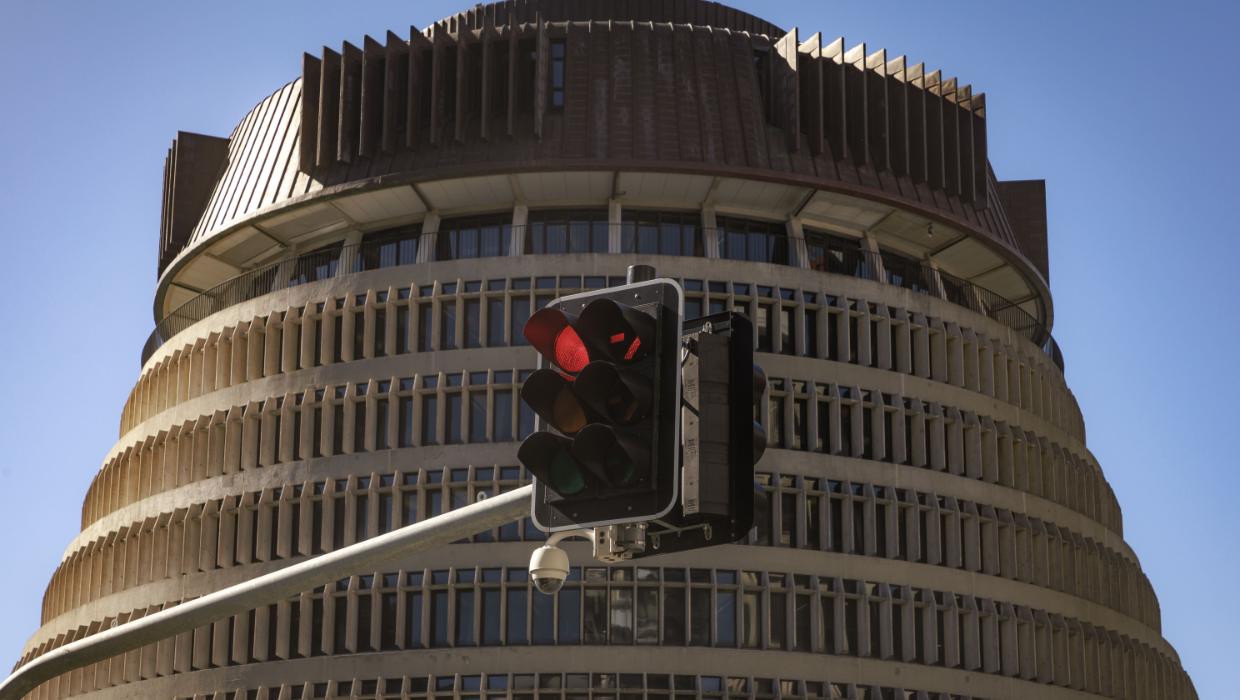Politics
New Rules for Public Service Misconduct Investigations Proposed

Significant changes are on the horizon for misconduct investigations within the public service, as the Public Service Amendment Bill advances through Parliament. The bill mandates that the head of the Public Service, currently Sir Brian Roche, be notified prior to the initiation of any serious misconduct investigations involving senior public officials.
This new requirement aims to enhance transparency and accountability as part of a broader reform aimed at improving the public service’s handling of misconduct cases. Under the proposed regulations, every public service agency will be required to report annually on the outcomes of all misconduct investigations, whether they are ongoing or concluded before the end of the financial year. This includes cases that may have been dropped or resolved.
Annual Reporting and Accountability Measures
The legislation stipulates that the Public Service Commissioner must compile a yearly report based on these investigations, which will be published online for public access. This initiative is expected to facilitate greater oversight and ensure that misconduct allegations involving high-ranking officials are addressed systematically.
Furthermore, the bill specifies that chief executives must inform the commissioner before commencing investigations into any serious allegations against senior employees. This provision applies to anyone who reports directly to a chief executive or board member, thereby broadening the scope of accountability within the public service.
In a related development, Public Service Minister Judith Collins recently announced new standards aimed at improving how complaints of sexual harassment are managed within the public service. These standards are designed to ensure that individuals raising complaints are treated with the utmost dignity, respect, and fairness.
Addressing Sexual Harassment in the Public Service
Under the new guidelines, there will be clear communication expectations with complainants, legal support when necessary, and enhanced pathways for escalating concerns. Minister Collins emphasized the importance of these improvements, stating they will foster a more respectful environment for all public service employees.
Last year, former Minister Nicola Willis urged the Public Service Commission to investigate potential actions following a significant sexual harassment case reported by The Post involving the Ministry of Education. An initial investigation conducted from 2020 to 2021, triggered by a formal complaint from an employee identified as Zara (a pseudonym), revealed troubling findings, including lack of leadership and inadequate communication.
According to a recent public service census, over 350 public servants reported experiencing sexual harassment in the past year, with 12.1% of respondents indicating they faced bullying or harassment in their current workplace. Additionally, a review released late last year highlighted that the Corrections sector suffers from a “male-dominant workplace culture,” which has been identified as a contributing factor to incidents of sexual harassment.
This proposed legislation represents a significant step towards reforming misconduct investigations and addressing the serious issue of harassment within public service agencies. As the Public Service Amendment Bill moves to the select committee stage, it will allow experts and the public to provide feedback and recommendations, shaping the future of public service accountability.
-

 World1 week ago
World1 week agoPrivate Funeral Held for Dean Field and His Three Children
-

 Top Stories2 weeks ago
Top Stories2 weeks agoFuneral Planned for Field Siblings After Tragic House Fire
-

 Sports3 months ago
Sports3 months agoNetball New Zealand Stands Down Dame Noeline Taurua for Series
-

 Entertainment3 months ago
Entertainment3 months agoTributes Pour In for Lachlan Rofe, Reality Star, Dead at 47
-

 Entertainment2 months ago
Entertainment2 months agoNew ‘Maverick’ Chaser Joins Beat the Chasers Season Finale
-

 Sports3 months ago
Sports3 months agoSilver Ferns Legend Laura Langman Criticizes Team’s Attitude
-

 Sports1 month ago
Sports1 month agoEli Katoa Rushed to Hospital After Sideline Incident During Match
-

 World2 weeks ago
World2 weeks agoInvestigation Underway in Tragic Sanson House Fire Involving Family
-

 Politics2 months ago
Politics2 months agoNetball NZ Calls for Respect Amid Dame Taurua’s Standoff
-

 Top Stories2 weeks ago
Top Stories2 weeks agoShock and Grief Follow Tragic Family Deaths in New Zealand
-

 Entertainment3 months ago
Entertainment3 months agoKhloe Kardashian Embraces Innovative Stem Cell Therapy in Mexico
-

 World4 months ago
World4 months agoPolice Arrest Multiple Individuals During Funeral for Zain Taikato-Fox





















